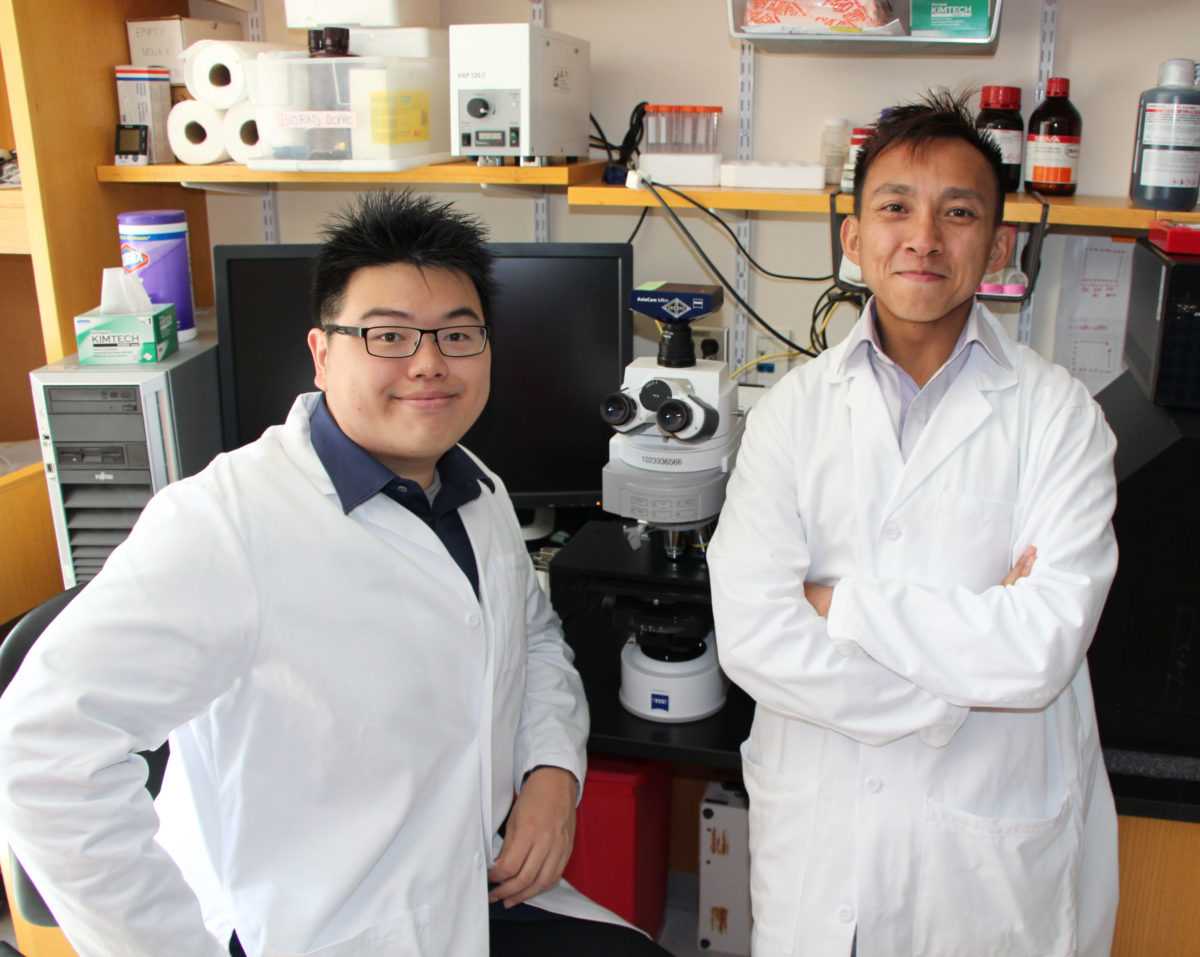The cofounders of startup that is looking to develop a vaccine for HPV are heading to a Buffalo accelerator.
PathoVax is among the new class of startups at 43North. A panel of judges and experts selected them as finalists after a big, fancy pitch competition held in late October meant to showcase Buffalo’s emerging tech chops.
It’s the latest step in the entrepreneurial journey for Weijie Poh and Joshua Wang, who came to Johns Hopkins as Ph.D. students.
Founded in 2014, the startup is looking to commercialize an HPV vaccine developed by Johns Hopkins School of Medicine professor Richard Roden. Known as RGVax, the antidote is unique in that it has shown to protect against all forms of cancer-causing HPV, including varieties that are transmitted both sexually and non-sexually.
In preclinical studies, “it was proven in peer review that we protect against at least 27 types of HPV,” Wang said.
Current vaccines only protect against some strains, and public health leaders are looking to combat a social stigma associated with the vaccine.
Having hatched at a Johns Hopkins lab, the company took advantage of opportunities in Maryland. They worked with entrepreneurship-backing initiatives at Johns Hopkins such as FastForward, and also licensed the technology from the university. Additionally, the company received funding from TEDCO’s MII Award. But they haven’t been shy about looking outside the state, too, winning a number of business plan competitions.

Weijie Poh celebrates at 43North. (Courtesy photo)
The latest award requires that they relocate their principle office to Buffalo for at least a year. However, the Singapore natives see themselves as a “cross-border” operation. It’s not the first time they’ve sought opportunities elsewhere, working with the Harvard Innovation Lab, and heading on the road for a number of business plan competitions in both the Northeast U.S. and Asia.
“We have so much ongoing with Baltimore. Those engagements will continue,” Poh said.
This was the second year they entered at 43North, which drew more than 500 applicants and grads from high-profile startup programs. Formally, they are a finalist in the competition. They’ll get $500,000 (in exchange for 5 percent equity). That’s in addition to $725,000 that the company already raised.
“The money itself will allow us to really define our clinical strategy,” he said.
The company is targeting clinical trials on humans in 2018.
The accelerator also provides space and access to mentors. Poh said it’s also an opportunity to tap into the biotech community in upstate New York.
“The state itself has put a lot of manpower behind this initiative,” he said.
Before you go...
Please consider supporting Technical.ly to keep our independent journalism strong. Unlike most business-focused media outlets, we don’t have a paywall. Instead, we count on your personal and organizational support.
Join our growing Slack community
Join 5,000 tech professionals and entrepreneurs in our community Slack today!

The person charged in the UnitedHealthcare CEO shooting had a ton of tech connections

From rejection to innovation: How I built a tool to beat AI hiring algorithms at their own game

Where are the country’s most vibrant tech and startup communities?


